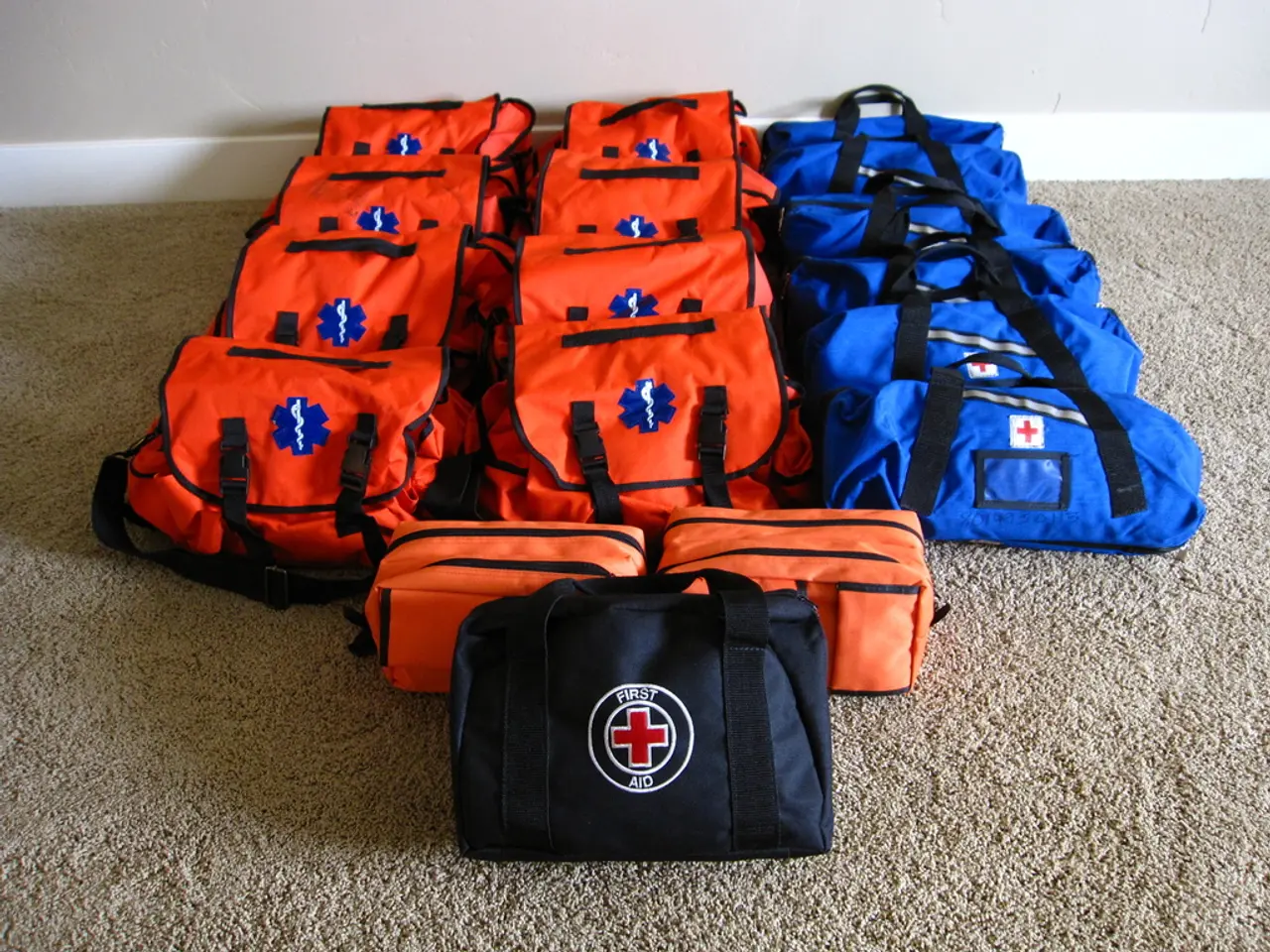Liverpool University collaborates with BARD1 Life Sciences Ltd for the development of a test for type 3C diabetes
University of Liverpool and BARD1 Life Sciences Ltd Partner for Groundbreaking T3cDM Diagnostic Test
The University of Liverpool and BARD1 Life Sciences Ltd have signed a significant two-year agreement, aiming to develop a revolutionary speed test for Type 3c Diabetes Mellitus (T3cDM). This speedtest, if successful, could help in distinguishing T3cDM from Type 2 Diabetes Mellitus (T2DM), improving diagnosis and potentially saving lives.
The agreement provides BARD1 with the option to license the intellectual property for the development and commercialisation of the T3cDM test on favourable commercial terms. The negotiation of this option agreement has been managed by the University of Liverpool's IP Commercialisation Team.
Research by the University has shown that the combination of adiponectin and interleukin-1 receptor antagonist (IL-1Ra) has high diagnostic potential for distinguishing T3cDM from T2DM. This speedtest uses patented technology developed by researchers in the University of Liverpool's Institute of Systems, Molecular and Integrive Biology.
Professor Eithne Costello, who heads the project at the University and is the lead researcher on the UK-Early Detection Initiative, stated, "This partnership is a significant step forward in our mission to improve the diagnosis and management of T3cDM." The UK-EDI study will collect pre-diagnostic samples and data from individuals who will subsequently receive a diagnosis of pancreatic cancer.
BARD1 is not only interested in the diagnostic potential of this speedtest but also in its potential to identify an at-risk population for a routine screening program for pancreatic cancer. Dr. Peter French, a scientist associated with BARD1 Life Sciences Ltd and involved in developing technologies potentially used in tests for T3cDM, believes that a speedtest for T3cDM could be a potential blockbuster diagnostic assay.
It is well-known that certain individuals with T3cDM are at increased risk of developing pancreatic cancer. Approximately 10 in 100 people with T3cDM have underlying pancreatic cancer, with diabetes acting as an early warning sign for the presence of cancer. An accurate and reliable T3cDM speedtest could, therefore, play a crucial role in early detection and treatment of pancreatic cancer.
The agreement allows the University and BARD1 to evaluate two novel protein biomarkers that can accurately distinguish T3cDM from T2DM in newly diagnosed diabetes patients. This collaboration is supported by grants from Pancreatic Cancer Action (PCA), Pancreatic Cancer UK (PCUK), North West Cancer Research (NWCR), and Cancer Research UK (CRUK).
Currently, no speedtest exists to identify T3cDM, and it is often misdiagnosed as T2DM or inappropriately managed. An effective T3cDM speedtest could, therefore, revolutionise the diagnosis and management of this condition. Those individuals that test positive for type 3c diabetes could be placed in an enhanced surveillance program and screened annually for pancreatic cancer using BARD1's specific pancreatic cancer tests.
This partnership between the University of Liverpool and BARD1 Life Sciences Ltd is a promising development in the field of diabetes research and could have significant implications for the diagnosis and treatment of both T3cDM and pancreatic cancer.
Read also:
- Restoring SCN2A gene function in mice through CRISPR activation enhances neurodevelopmental outcomes.
- New York joins a multistate health coalition to counteract chaos in federal vaccine distribution efforts
- Enhanced Iron Absorption in Female Health: Biotechnology Developed Plant Protein Outperforms Iron Supplements in Fermentation
- Controversy Surrounding Epstein Heats Up in Washington; Trump Endorses Homelessness Executive Order; More Events Reported







